National marathoner Mok Ying Ren, 30, is no stranger to the Singapore running scene.
A double South East Asian Games gold medallist (2007 Triathlon and 2013 Marathon events), Mok has won the Standard Chartered Singapore Marathon almost every year from 2009 to 2016 except in 2012 when he came third, but Mok these days has toned down on his running and is focusing on his career as an orthopaedic surgeon in the National University Hospital. But running continues to remain as his passion though, as he often runs home from the hospital.
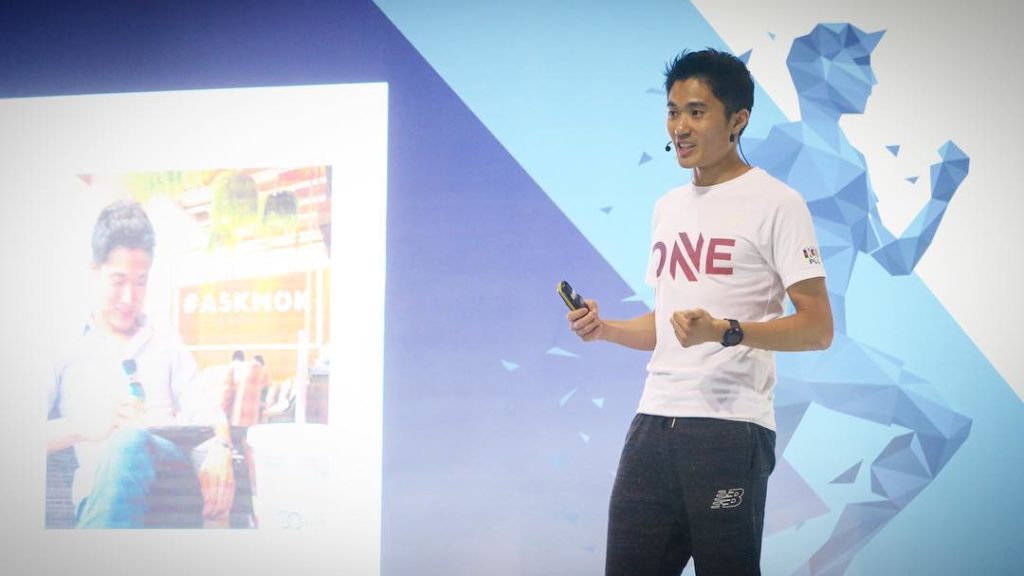
Mok recently gave a short talk to runners, in order to share some last minute tips for races.
Said Mok, “At the last minute, there is nothing that you can do, to change your performance till race day, as the training has already been done.”
But to ensure that you execute a good race and do not screw things up, Mok has some advice to share.
Pacing
Pacing is one important aspect of whether you can make or break a race, according to Mok.
What is pacing, anyway?
The time that you take to run a race in minutes divided by the number of kilometres you cover in that time, is your race pace, according to Mok.
And added the doctor, “pace is an ideal metric because it helps you to plan your race and training.”
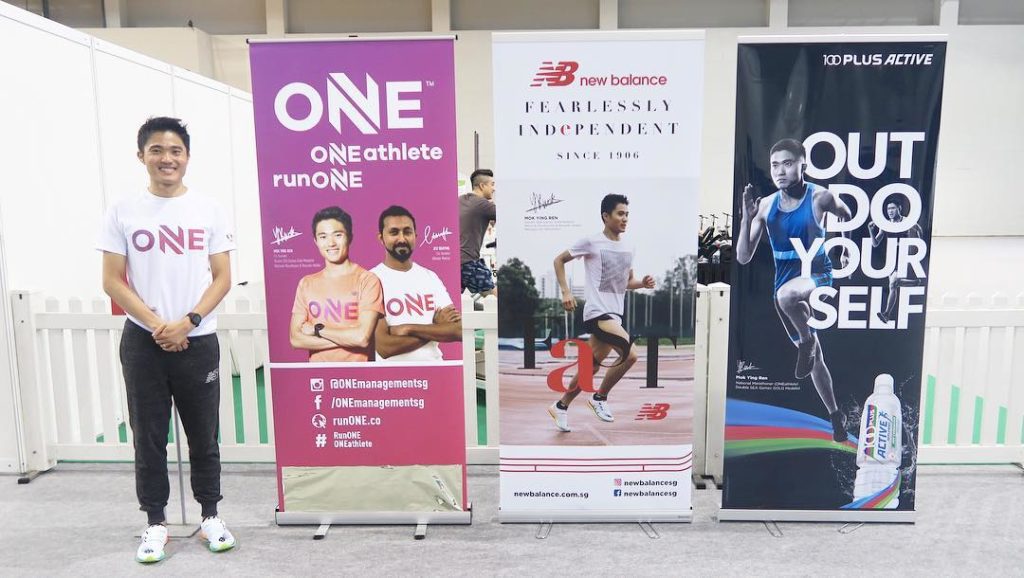
There are three types of pacing strategies. These are:
- Even Splits: Run the first and second half in the same time e.g. for a 10km race, running the first 5km in 20 minutes and the second 5km in 20 minutes.
- Positive Splits: Chiong in the first half and slowing down in the second half e.g. for a 10km race, running the first 5km in 20 minutes and the second 5km in 30 minutes.
- Negative Splits: Starting slowly and picking up the pace in the second half e.g. for a 10km race, doing the first 5km in 25 minutes and the second 5km in 20 minutes.
But which is the best race strategy to take though?
Mok suggests that either taking an even or negative splits approach are the way to go, if you want to run a race well.
He said, “the mentality of running so hard in the first half and then hitting the wall and slowing down after that is a bad one.”
Continued Mok, “If you start off conservatively, aiming to run even splits you can always run negative splits at the end, but if you run too hard at the start, you cannot salvage the race anymore after that.”
Mok added that for himself, some of his best races are those where he runs even splits or else run for the sake of enjoyment and without any time goals.
He said, “And it always feels much better when you start catching people at the end.”
To know what pace to run at, Mok suggests to use a running calculator, such as the McMillan Running Calculator.
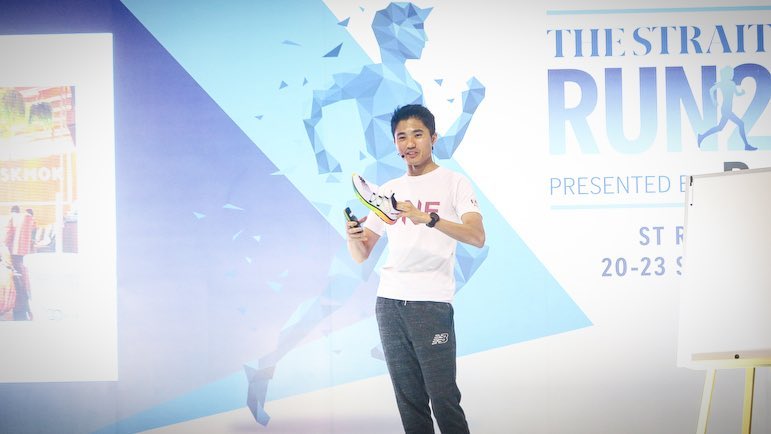
He said, “It will help you to gauge your fitness level and find the best fit for you on race day.”
Hydration
Another important aspect is hydration and while most people know that this is important, Mok pointed out that most people end up at the medical tent because of over-hydration and not dehydration.
As the name suggests, over-hydration is when you drink more water than your need. As a result, certain salts in the body get diluted
Said Mok, “This is known as hyponatraemia. We are ingrained to drink when we are thirsty or tired and that is dangerous. We advise runners to drink to the point of thirst.”
He added, “If you are not thirsty, you do not need to drink. The whole point is making sure that you do not dilute your sodium levels.”
It also helps, according to Mok, if you drink isotonic drinks that contain sodium, instead of plain water, when you do sports, as this alleviates the effect of drinking too much water.
He said, “To choose your sports drink, it should be non carbonated. If you are taking a carbonated drink, it is gassy and that makes running harder. Secondly it should be hydrating and thirdly the drink should taste sweet.”
The doctor also added that you should get used to the sports drink that the race is offering and make sure that it does not give you stomach problems during the race, by testing it out in advance.
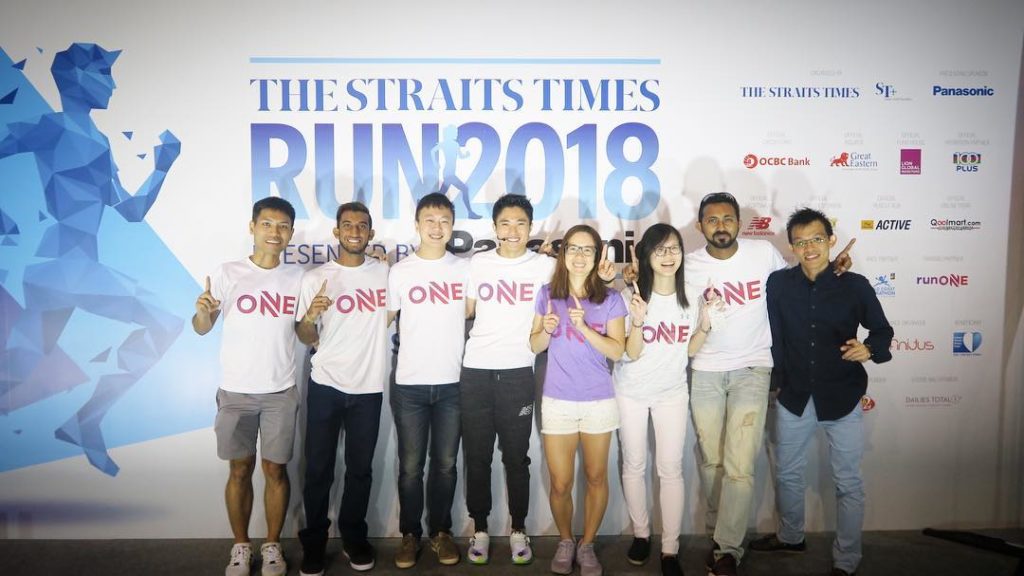
But to prevent unnecessary weight gain, Mok advises runners to drink only during a long run or a race, and not to consume sports drinks on a daily basis.
For Mok himself, he places a 300ml water bottle at every 5km during a marathon and in his bottles, he alternates between 100PLUS and a water bottle with plain water and a sports gel.
Sports gels, according to Mok, are to be taken during every 45 minutes to one hour of running and he advise these to be taken with plain water instead of an isotonic drink.
This is because gels are very concentrated in energy and taking them with sports drink may cause stomach problems to those who are sensitive.
While high-energy food such as bananas and chocolate bars can also provide race energy, Mok recommends gels because these are the easiest for the body to digest and process into fuel.
Said Mok, “And then when I run past each station, I will grab the bottle and drink. I consume 100ml-200ml and I drink only to the point of thirst.”
However if you do happen to miss a water point though, Mok says that this should not be a concern because the body is able to take it, as there are more problems with over-hydration during races and not dehydration.
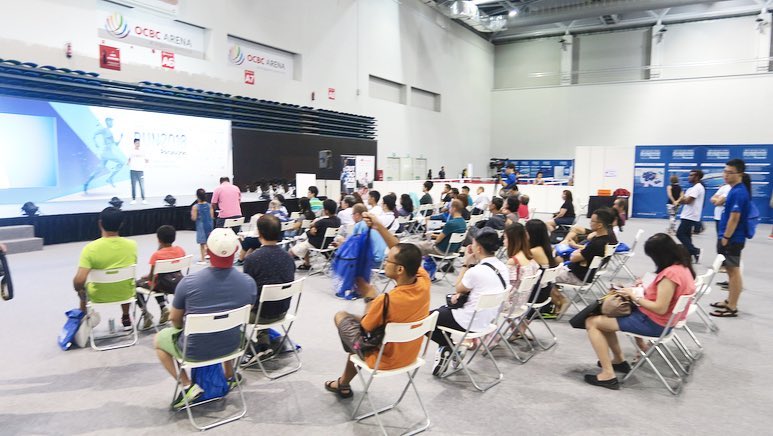
Race Day Breakfast
And for your race morning breakfast, Mok advises runners to do what they are used to doing during training, and not to try out anything new.
Personally though he is an advocate of eating breakfast before a run, because according to Mok, your energy stores would have been depleted during the night, so eating something before the race will help to replenish those glycogen stores.
The doctor added, “I eat breakfast about two to three hours before the race. If you are not used to this routine, I suggest try it out by eating something and see how your body adapts to it, a few weeks before race day.”
So this means that if your race begins at 5am in the morning, you need to have your breakfast between 2am to 3am.
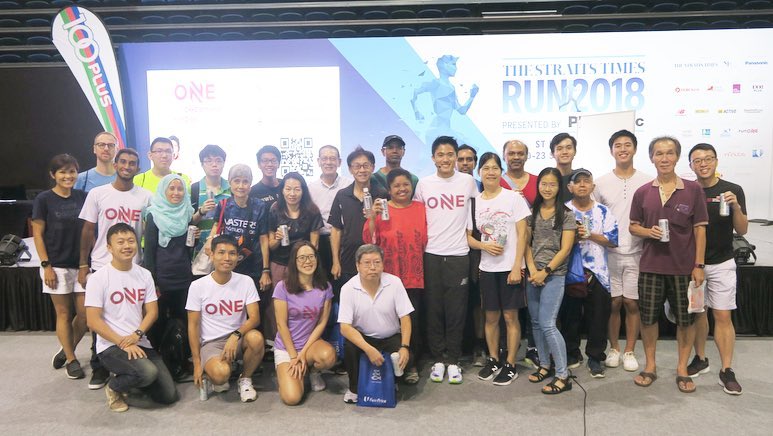
End of Talk
About an hour later, the talk ended with Mok, together with his team from ONE Management taking pictures, fielding Question & Answers and gamely agreeing to photo requests from attendees who had been at the talk.
Cans of 100PLUS were also handed out to the talk attendees too, in order for us to stay hydrated.
I would say that it had been an informative and educational session to learn from one of the best runners in Singapore.
All photos in this post are from Facebook/ONE Management SG.

Leave a Comment